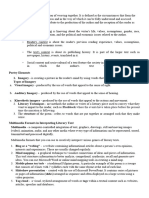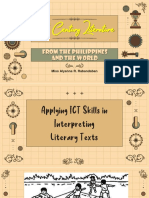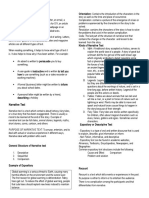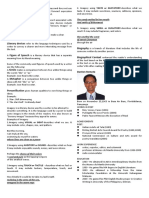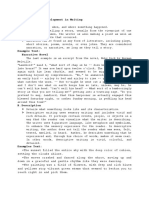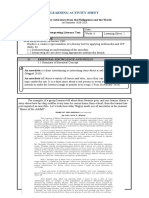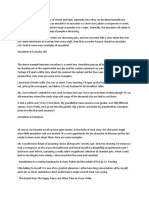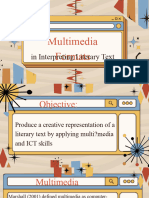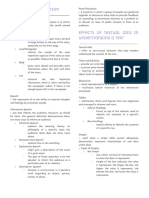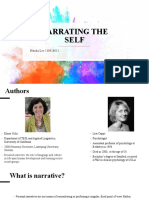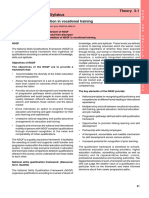WHAT IS CONTEXT?
It is defined as the circumstances that form the setting of events, statements, or ideas and in the way of which
it can be fully understood and assessed.
WHAT IS TEXT?
A book or other written or printed work, regarded in terms of its content rather than its physical form. The main
body of a book or other piece of writing, as distinct from other material such as notes, appendices, and
illustrations.
WRITER’S CONTEXT is knowing about the writer's life, values, assumptions, gender, race, sexual orientation,
and the political and economic issues related to the author.
READER’S CONTEXT is about the reader's previous reading experience, values, assumptions, political and
economic issues.
TEXT’S CONTEXT involves the work’s publishing history. It is part of the larger text such as newspaper,
history, events, translated in it.
SOCIAL CONTEXT & SOCIO-CULTURAL these feature the society in which the characters live and in which
the author's text was produced.
Imagery is creating a picture in the reader's mind by using words that appeal to the senses.
Visual Imagery produced using words that appeal to the sense of sight.
Auditory Imagery produced using words that appeal to the sense of hearing.
Kinesthetic imagery produced using words that appeal to the actions and movement.
What is Anecdote?
An anecdote is a short entertaining for interesting story about a real incident of person (Nagpal, 2016)
Anecdotes tell about a variety of stories and tales, since they can be about any topic under the sun.
It is a short story about a real person or event which usually intends to make the listeners laugh or ponder over
a topic. (Your Dictionary 2020)
Example: if a group of learners talk about their favorite’s pets, and one learners shares story about how his
dog cuddles every time he comes home.
PURPOSES OF ANECDOTES?
To Bring Cheer. Stories pop up anywhere and these are just sometimes making people laugh to brighten their
mood.
Example: At the dinner, a Grade 11 learner shared his story on his first day at school when he got lost and
attended a wrong class.
To Reminisce
In most anecdotes, people are talking about their experiences in the past. They try to look back on moments in
their lives and share the joy of that time with others.
Example: A mother tells her children a story about her life in the province when she was teenager.
To Caution
�Sometimes, just giving rules for individuals is not effective. Sharing to them frightening stories of dangers can
be helpful for them to realize the possible consequences of their actions.
Example: Before beginning a lecture on not following traffic rules, a father tells his son an incident of collision
that caused many lives due to ignoring traffic signs.
To Persuade or Inspire
Sometimes, people share stories on how they surpassed their struggles in life. These, most of the time, give
encouragement to others who have been in similar situations. The message usually conveys successes in life
as a fruit of hard work.
Example: Before beginning a remedial class, the teacher tells the students how a boy who used to struggle in
reading managed to be a proficient reader.
